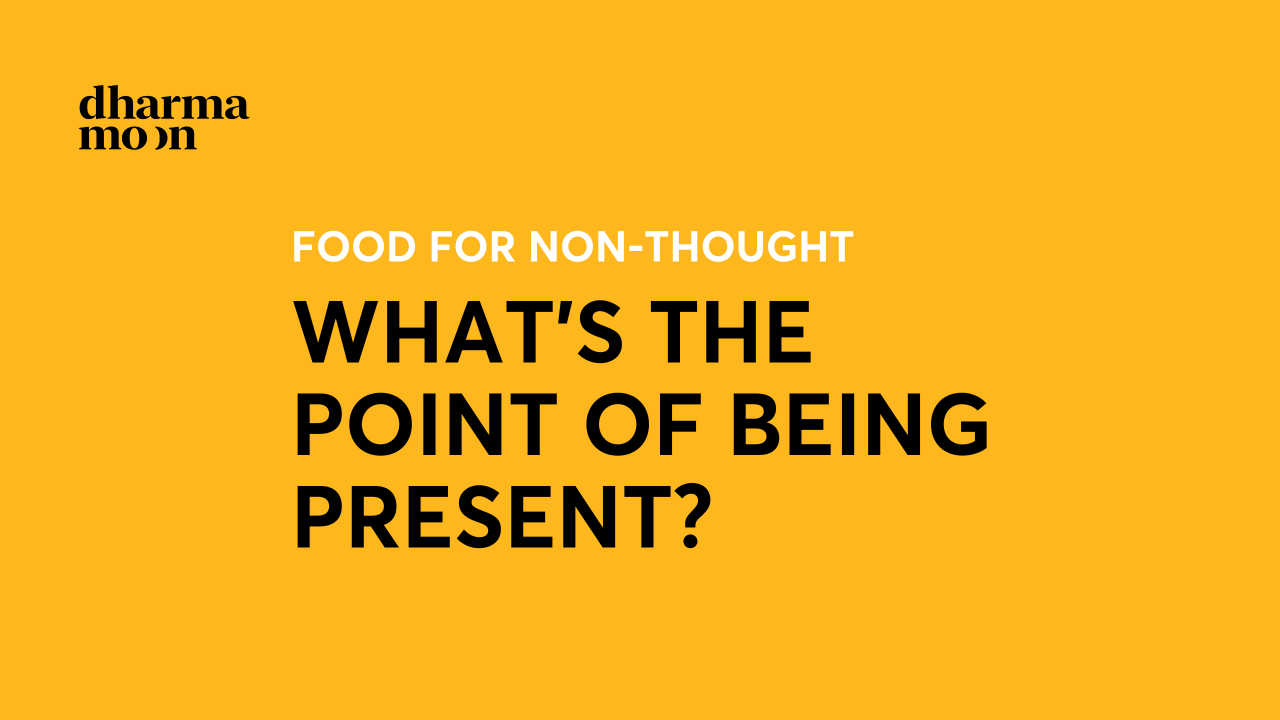What's the Point of Being Present?

Written by Jen Liu
“Healing, change, enlightenment, suffering, and indeed the choice to end suffering all only happen in the present. Despite that powerful truth, meditation inevitably wakes us up to the sobering realization that we are actually living outside of the present most of the time. ”
When we practice mindfulness meditation and use an anchor point like the breath to sync up body and mind, we sometimes experience a profound sensation of "arriving in the present." Where did we return from? And what's the point of coming back to the present moment from wherever we were?
The reason we practice being present is, quite simply, because nothing ever happens anywhere else. As convincing, vivid, and real as our imaginary scenes of past and future may feel, they are actually all just manifestations of the choice to engage the present moment by departing from it.
At best, living too much outside of the present makes us distracted, unaware, and unable to access the full awakening potential of the reality unfolding before us. At worst, it can bring us unlimited amounts of unnecessary suffering. Anxiety, stress, worry, and even eagerness for something to come (which can be deregulating in a pleasant way) yank us out of the present as a result of too much future. Resentment, despair, anger, shame, and regret consume us as a result of compulsively replaying events of the past — often to the additional side effect of distracting us from actually doing something about it in the present.
Healing, change, enlightenment, suffering, and indeed the choice to end suffering all only happen in the present. Despite that powerful truth, meditation inevitably wakes us up to the sobering realization that we are actually living outside of the present most of the time. With consistency and commitment to the practice, we can figure out how to reach more of a balance and integrate presence into our everyday lives.
Living in the present isn't about suppressing memories, refusing to plan and organize, or being less considerate; the point, after all, is to reduce suffering, not increase it. It's about reclaiming our attention and being able to properly contextualize our internal experiences. We can choose to give less energy to distressing mental fixations so we aren't left without enough resources to attend to the life that is actually in front of us.
If we spend too much time in the future or past, we can only hope to achieve, at most, a concept of what enlightenment is. But an experiential enlightenment would require us being right here, and having the presence of mind to know when we can have a liberating interaction with the situation that stands before us.

